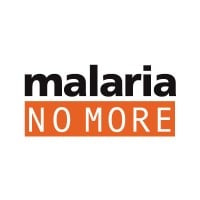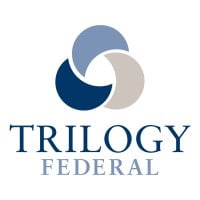Training Program Overview A transformative learning program that builds cohorts of public-health, meteorology, and One Health professionals to operationalize climate information systems for health (CIS-H) including AI-driven early warning and response within NAPHS and multisectoral systems. Through blended instruction, labs, and peer exchange, participants will gain:
- NAPHS & One Health: turn SPAR/JEE/AAR insights into coordinated PHEOC/FETP workflows
- Surveillance: IBS dashboards and EBS alert pipelines linking human, animal, and environmental data
- Data Preparation: assemble meteorological, satellite, animal-health, and clinical streams into “AI-ready” datasets
- Model Customization: fine-tune pre-trained climate-health models on local data
- Deployment: package inference services into PHEOC dashboards and FETP toolkits
- SOPs & Dashboards: embed model outputs in response plans, stockpile management, and risk communications
- Alerts & Analytics: configure role-based alerts and dashboards for decision-makers and frontline workers
- Privacy, bias mitigation, and governance in One Health contexts
- Design of enduring learning pathways and SOPs to sustain local capacity
Delivery Format
- Interactive Lectures & SME Panels
- Hands-On Labs & Code Clinics
- Capstone Projects with Peer Review
- Cross-Country Exchange Sessions
What You’ll Do
- Lead cohort development and engagement: Recruit and manage participant cohorts; design onboarding, engagement trackers, and community platforms to sustain collaboration.
- Architect adult learning curricula: Assist Program Manager in defining learning objectives and competency frameworks; apply instructional-design best practices (micro-learning, scenario-based, flipped-classroom).
- Package and coordinate content: Assemble modular training packages—slides, guides, datasets, quizzes—and coordinate delivery by subject-matter experts in public health, climate science, AI, and surveillance.
- Provide subject matter expertise:Infuse modules with public-health, One Health, and climate-health insights; ensure epidemiology and surveillance best practices are woven throughout.
- Validate accuracy & relevance and measure outcomes: Work with Program Manager and in-house experts to review all materials; collaborate with AI/ML and Data Engineers to embed real-world code snippets, dashboards, and model outputs.Design and track learning metrics (engagement, assessments, training outcomes); refine materials and delivery based on feedback.
- Facilitate key sessions/ workshops: Lead strategic and technical breakout discussions; mentor participants during labs and office hours.
- Organize peer exchange: Assist Program Manager in planning and moderating cross-country knowledge-sharing sessions to surface best practices and foster ongoing collaboration.
What We’re Looking For
- Public health and surveillanceexpertise:Advanced degree (MPH, DrPH, MSc, or PhD) in public health, epidemiology, veterinary public health, or a related field; deep familiarity with NAPHS, IHR MEF, PHEOC and FETP operations, and integrated indicator- and event-based surveillance across human, animal, and environmental health sectors.
- Instructional design and adult learning:5+ years designing professional training– experience with scenario-based, cohort-based, or competency-based learning.
- Project and cohort management:Proven ability to launch and sustain multi-country training cohorts, track engagement, and manage logistics.
- Facilitation & stakeholder management:Strong virtual and in-person facilitation skills; adept at working with diverse government, NGO, and academic partners.
- Communication and collaboration:Exceptional writing and presentation skills; proven ability to communicate complex technical and strategic content and build consensus with Ministry of Health leadership, senior public health officials, and multilateral partners.
- Climate-health data & AI fluency:Expertisein grasping complex analytical concepts, then distilling and communicating them in clear, actionable terms for diverse audiences.
Preferred Qualifications
- Experience in globalhealth capacity building or field epidemiology training
- Familiarity with learning-management systems or virtual-lab platforms
- Track record of open-source educational contributions or MOOC development
- Background in climate science or environmental health
Why You’ll Love This Role
- High-impact mission:Empower professionals whose decisions save lives in climate-vulnerable regions.
- Cross-sectoral collaboration:Partner with engineers, epidemiologists, policymakers, and field teams.
- Innovation in learning:Apply cutting-edge adult-learning methods and AI content to a global program.
Top Skills

What We Do
Malaria No More (MNM) envisions a world where no one dies of a mosquito bite. More than a decade into our mission, our work has contributed to historic progress toward this goal. Now, we’re mobilizing the political commitment, funding, and innovation required to achieve what would be one of the greatest humanitarian accomplishments—ending malaria within our generation.
MNM is a global organization with offices in Washington, D.C. and Nairobi, and affiliates in the United Kingdom and Japan.










